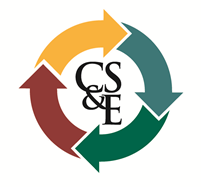
Clinical Safety and Effectiveness Course 23 (RP1911G)
The purpose of the Clinical Safety & Effectiveness (CS&E) course is to provide physicians, other key clinicians and adminstrators the skills, knowledge, and tools necessary to lead quality improvement projects and change initiatives designed to improve patient outcomes. The course curriculum includes quality improvement (QI) methodologies and tools that focus on problem solving and process improvement activities that can be used to identify healthcare delivery improvement opportunities. Topics include project charter creation, team dynamics, QI vs. research, introduction to QI, DMAIC and PDSA methodologies, quality tools (Pareto, run and control charts, histogram, cause and effect diagrams) root cause analysis, lean concepts (push/pull, 6S, waste, error proofing, visual management), and change management.
Learning Objectives
- Describe QI including the case for continuous QI, what is quality and who defines it.
- Describe why quality is an imperative for organizational survival and is a core business strategy for healthcare.
- Describe the QI process as a pragmatic science that gathers evidence, defines causes, implements changes, and measure results over time.
- Describe statistics, statistical control, and variation including standard deviation, process capability, confidence and probability, distribution, correlation and causation, dependent and independent variable, and hypothesis development.
- Describe the application of change management and team dynamics as they relate to process improvement projects in the healthcare setting.
- Describe the use of Lean methodology in process improvement activities.
Day 1 October 2, 2019 Location: NB2.100A
Time | Title | Faculty |
8:00 – 9:00 | Introduction to Quality Improvement | Gary Reed |
9:00 – 10:00 | QI versus Research, QI Methods – PDSA, DMAIC, Charter, Aim Statement | Pat Griffith |
10:00 – 10:15
| Break |
|
10:15 – 12:00 | QI Methods (continued) - Teams and Roles | Pat Griffith |
12:00 – 1:00 | LUNCH ON YOUR OWN |
|
1:00 – 2:30 | Conflict Resolution | Lauren Smith |
2:30 – 2:45 | Break |
|
2:45 – 4:15 | QI Tools (continued) | Pat Griffith |
Day 2 October 21, 2019 Location: NB2.100A
Time | Title | Faculty |
8:00 – 9:00 | Understanding Variation and Data | Gary Reed |
9:00 – 10:00 | RCA | Gary Reed |
10:00 – 10:15 | Break |
|
10:15 – 10:30 | Alumni Presentation – QI Project | Meghan Michael Sree Cheruku Chris Deonarine Hooman Heravi |
10:30 – 11:15 | “The Wrong Patient” - Work Group | Gary Reed |
11:15 – 12:15 | Lunch – ON YOUR OWN |
|
12:15 – 1:00 | Patient Safety – “The Wrong Patient” - Discussion | Gary Reed |
1:00 – 1:10 | Break |
|
1:10 – 2:00 | High-Reliability Organizations (HRO) | Gary Reed |
2:00 – 4:15 | QI Tools | Pat Griffith |
Day 3 October 30, 2019 Location: NG3.202
| Title | Faculty |
8:00 – 10:00 | Lean | Pat Griffith |
10:00 – 10:15 | Break |
|
10:15 – 12:00 | Lean | Pat Griffith |
12:00 – 1:00 | Lunch – ON YOUR OWN |
|
1:00 – 1:15 | Alumni Presentation – QI Project | Chris Sherod |
1:15 – 3:00 | Lean | Pat Griffith |
3:00 – 3:15 | Break |
|
3:15 – 4:30 | Lean | Pat Griffith
|
Day 4 November 13, 2019 Location: NG3.202
Time | Title | Faculty |
8:00 – 9:30 | Change Management | Suzanne Farmer |
9:30 – 9:45 | Break |
|
9:45 – 11:00 | Servant Leadership | Bob Ferguson |
11:00 – 12:30 | Lunch – ON YOUR OWN |
|
12:30 – 1:30 | Return on Investment (ROI), Making Improvement Last, and Creating Presentations and Posters | Patrice Griffith |
The University of Texas Southwestern Medical Center is accredited by the Accreditation Council for Continuing Medical Education to provide continuing medical education for physicians.
The University of Texas Southwestern Medical Center designates this live activity for a maximum of 23.5 AMA PRA Category 1 Credits™. Physicians should claim only the credit commensurate with the extent of their participation in the activity.
Available Credit
- 23.50 AMA
- 23.50 Attendance

 Facebook
Facebook X
X LinkedIn
LinkedIn Forward
Forward